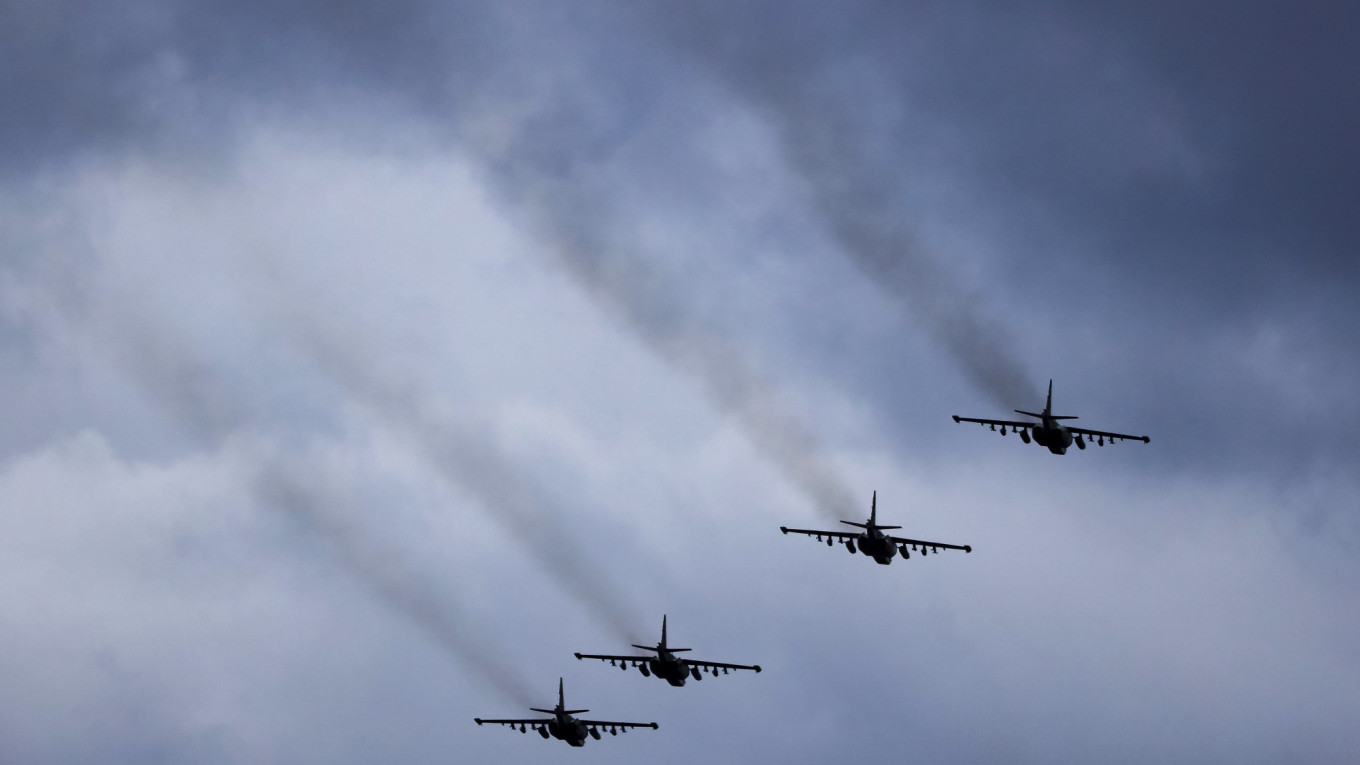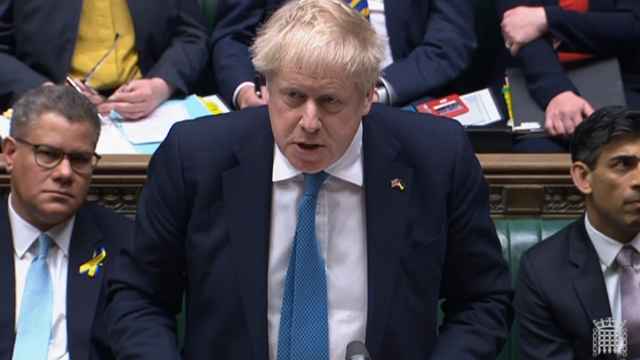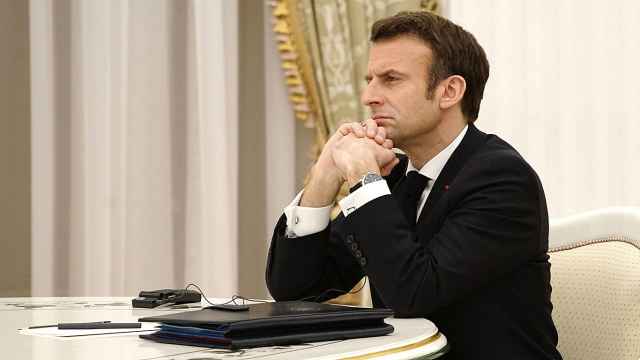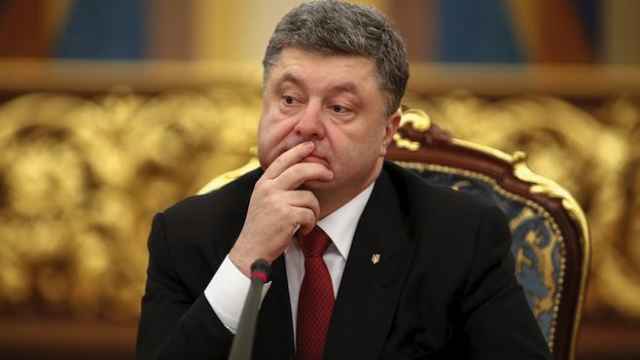Moscow launched dozens of air strikes across eastern Ukraine overnight, its Defense Ministry said Tuesday, with Russia's top diplomat acknowledging "another phase" of the conflict was beginning as fighting raged in the Donbas region.
Russia's Defense Ministry said that "high-precision air-based missiles" had hit 13 Ukrainian positions in parts of the Donbas while other air strikes "hit 60 military assets," including in towns close to the eastern frontline.
Ukraine's armed forces also confirmed that fighting had increased throughout the east, just hours after President Volodymyr Zelensky said Russia had kicked off the widely anticipated offensive in the Donbas, Ukraine's industrial heartland.
"The Russian occupiers intensified offensive operations along the entire line of contact," the general staff of Ukraine's armed forces said in a report published early Tuesday.
Russia's Foreign Minister Sergei Lavrov appeared to acknowledge the new offensive during an interview with a leading Indian media outlet.
"Another phase of this operation is beginning and I am sure it will be a very important moment in this entire special operation," Lavrov told India Today on Tuesday.
Ahead of the advance, Ukrainian authorities had urged people in Donbas to flee west to escape, even as officials called off evacuations for a third straight day from frontline cities due to ongoing fighting.
"No matter how many Russian soldiers are brought here, we will fight. We will defend ourselves," Zelensky said on Telegram late Monday.
'Bombed everywhere'
Russian President Vladimir Putin has said he launched the so-called military operation on February 24 to save Russian speakers in Ukraine from a "genocide" carried out by a "neo-Nazi" regime.
But in the Donbas town of Novodruzhesk, Nadya, 65, said "we are bombed everywhere."
"It's a miracle that we're still alive," she said, her voice trembling.
"We were lying on the ground and waiting. Since Feb. 24 we've been sleeping in the cellar."
Control of Donbas and the besieged port of Mariupol would allow Moscow to create a southern corridor to the Crimean peninsula that it annexed in 2014, and deprive Ukraine of much of its coastline and a major revenue resource.
Zelensky's advisor Oleksiy Arestovich told Ukrainian television that the battle for Donbas had been ongoing for 12 days.
"They advance by looking for weak points in our defenses. As soon as they find them, they infiltrate them," he said.
In the south, Russia continued its push to capture the besieged port city of Mariupol, as Moscow issued a fresh call for the city's defenders to surrender and announced the opening of a humanitarian corridor for Ukrainian troops who agreed to lay down their arms.
During an interview broadcast on CNN Tuesday, Pavlo Kyrylenko — who oversees the Donetsk region's military administration — said Mariupol remained contested.
"The Ukrainian flag is flying over the city," said Kyrylenko. "I can't say the Russians are controlling them. It is just these streets are sustaining heavy fighting."
$800 million boost
The first shipments of a new $800-million (740 million euros) U.S. military aid package had begun to arrive at Ukraine's borders this week, for use against Russian forces.
Washington was due to hold a video meeting with allies Tuesday to discuss the conflict in Ukraine, even as it increasingly provoked the ire of Moscow.
"The United States and Western states under its control are doing everything to drag out the military operation for as long as possible," said Russia's defense chief Sergei Shoigu in a televised meeting with his military commanders.
"The growing volume of foreign weapons supplies graphically demonstrate their intention to provoke the Kyiv regime to fight to the last Ukrainian."
'Seismic waves'
While much of the focus has remained in Ukraine's east, Moscow has also targeted the country's west with air strikes, killing at least seven people in the city of Lviv near the Polish border on Monday.
Lviv has largely been spared bombardment since Russia invaded on Feb. 24, and the city and its surroundings had become a haven for those seeking safety from the war zone.
But even as strikes continued to hit targets across the country, the east appeared to be Russia's primary focus.
The regional governor of the eastern Lugansk region Sergiy Gaiday said Ukrainian forces continued to hold their ground amid heavy fighting.
"We have positional battles in the cities of Rubizhne and Popasna. The enemy cannot do anything though. They are losing people and equipment there," Gaiday said.
"Our guys are shooting down drones there. Shooting down planes on the border of the Lugansk and Kharkiv regions, so they are holding on," he added.
As fighting raged, the International Monetary Fund (IMF) published a grim forecast for the warring nations on Tuesday, while also predicting the conflict would drag down the global economy — hitting poorest nations the hardest.
"The economic effects of the war are spreading far and wide — like seismic waves that emanate from the epicenter of an earthquake," said IMF chief economist Pierre-Olivier Gourinchas.
The report predicted Ukraine suffering a 35% collapse of its economy this year, while Russia's GDP will fall 8.5% — more than 11 points below the pre-war expectations.
A Message from The Moscow Times:
Dear readers,
We are facing unprecedented challenges. Russia's Prosecutor General's Office has designated The Moscow Times as an "undesirable" organization, criminalizing our work and putting our staff at risk of prosecution. This follows our earlier unjust labeling as a "foreign agent."
These actions are direct attempts to silence independent journalism in Russia. The authorities claim our work "discredits the decisions of the Russian leadership." We see things differently: we strive to provide accurate, unbiased reporting on Russia.
We, the journalists of The Moscow Times, refuse to be silenced. But to continue our work, we need your help.
Your support, no matter how small, makes a world of difference. If you can, please support us monthly starting from just $2. It's quick to set up, and every contribution makes a significant impact.
By supporting The Moscow Times, you're defending open, independent journalism in the face of repression. Thank you for standing with us.
Remind me later.






